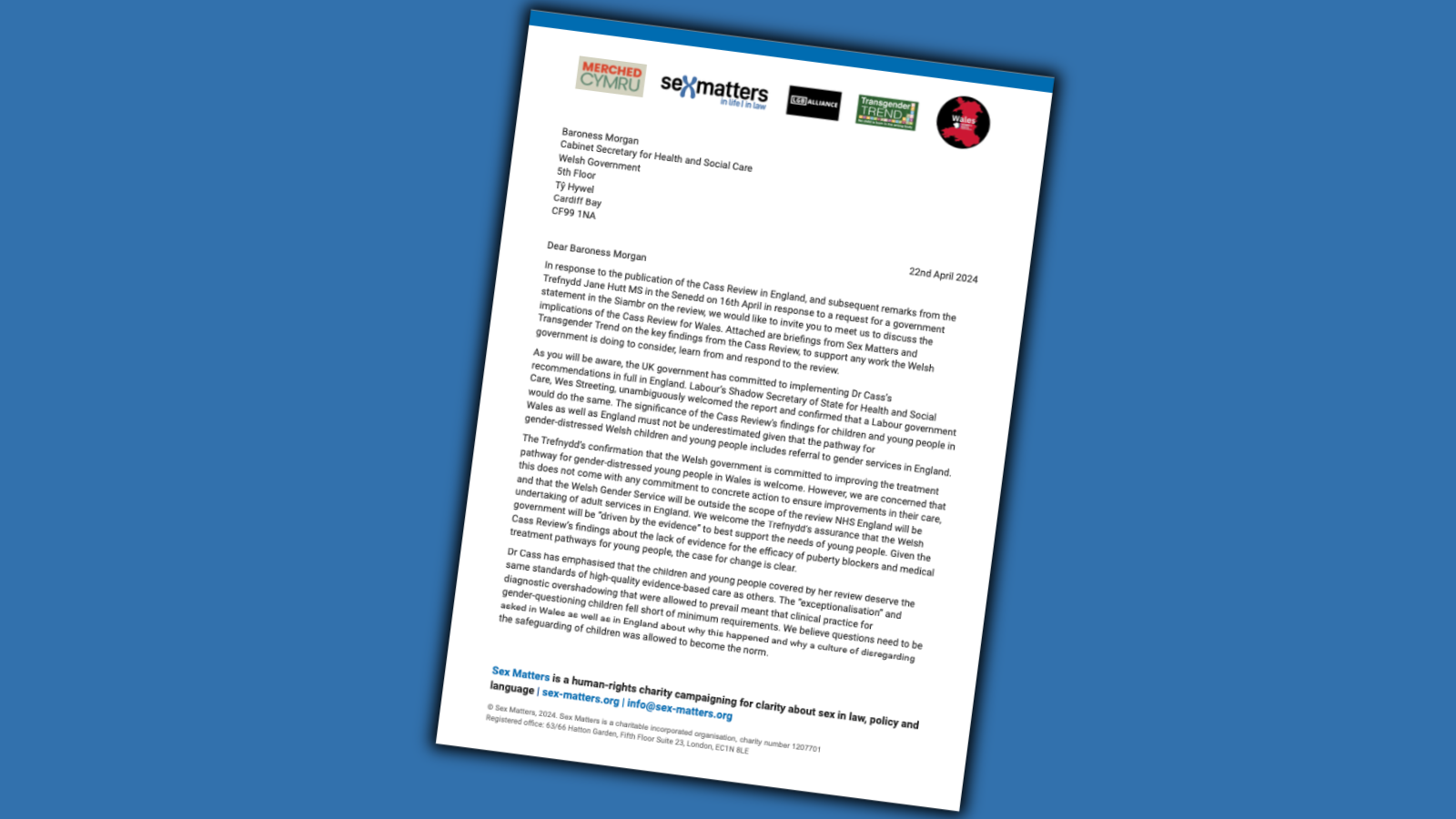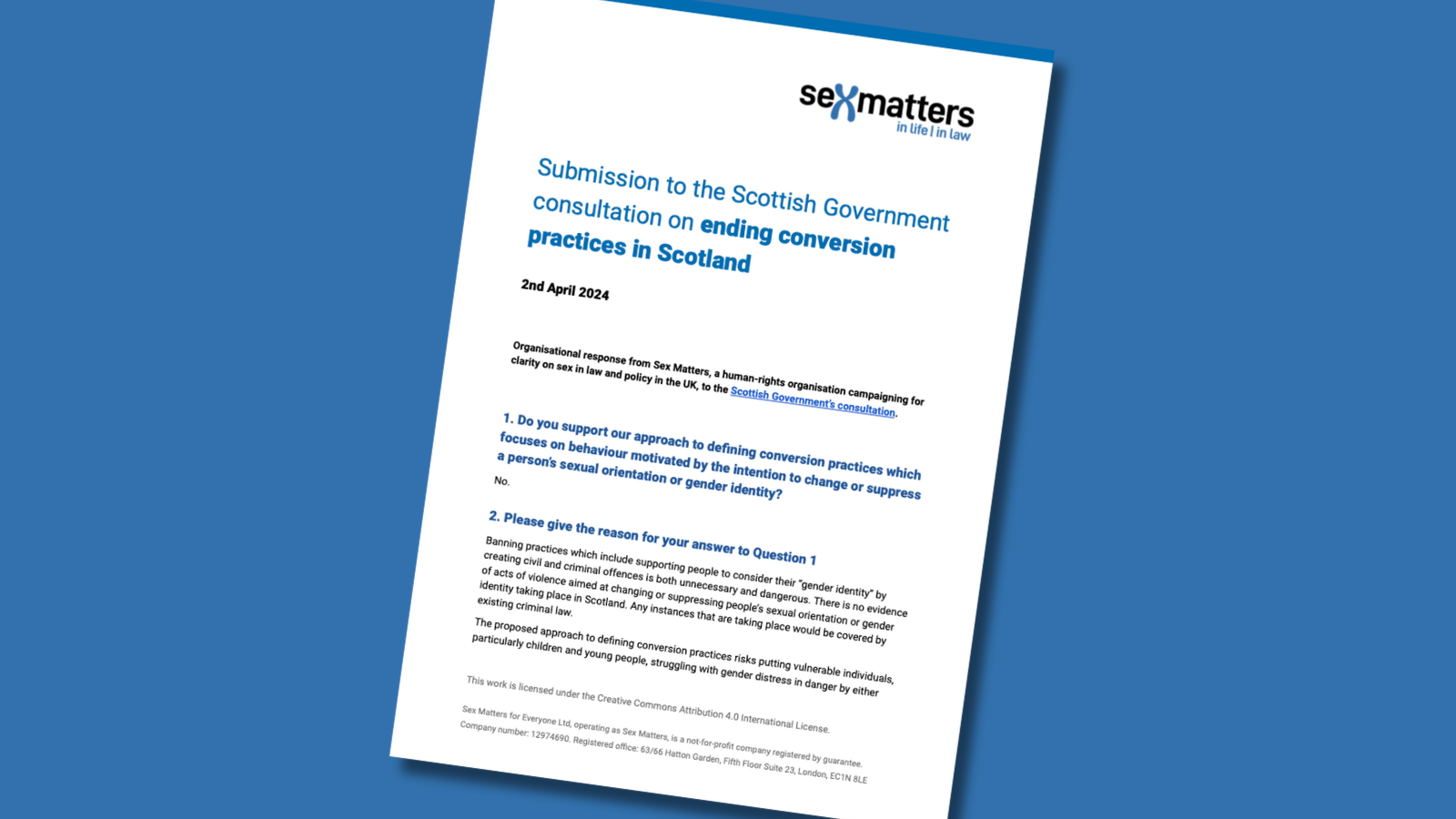Publications
-
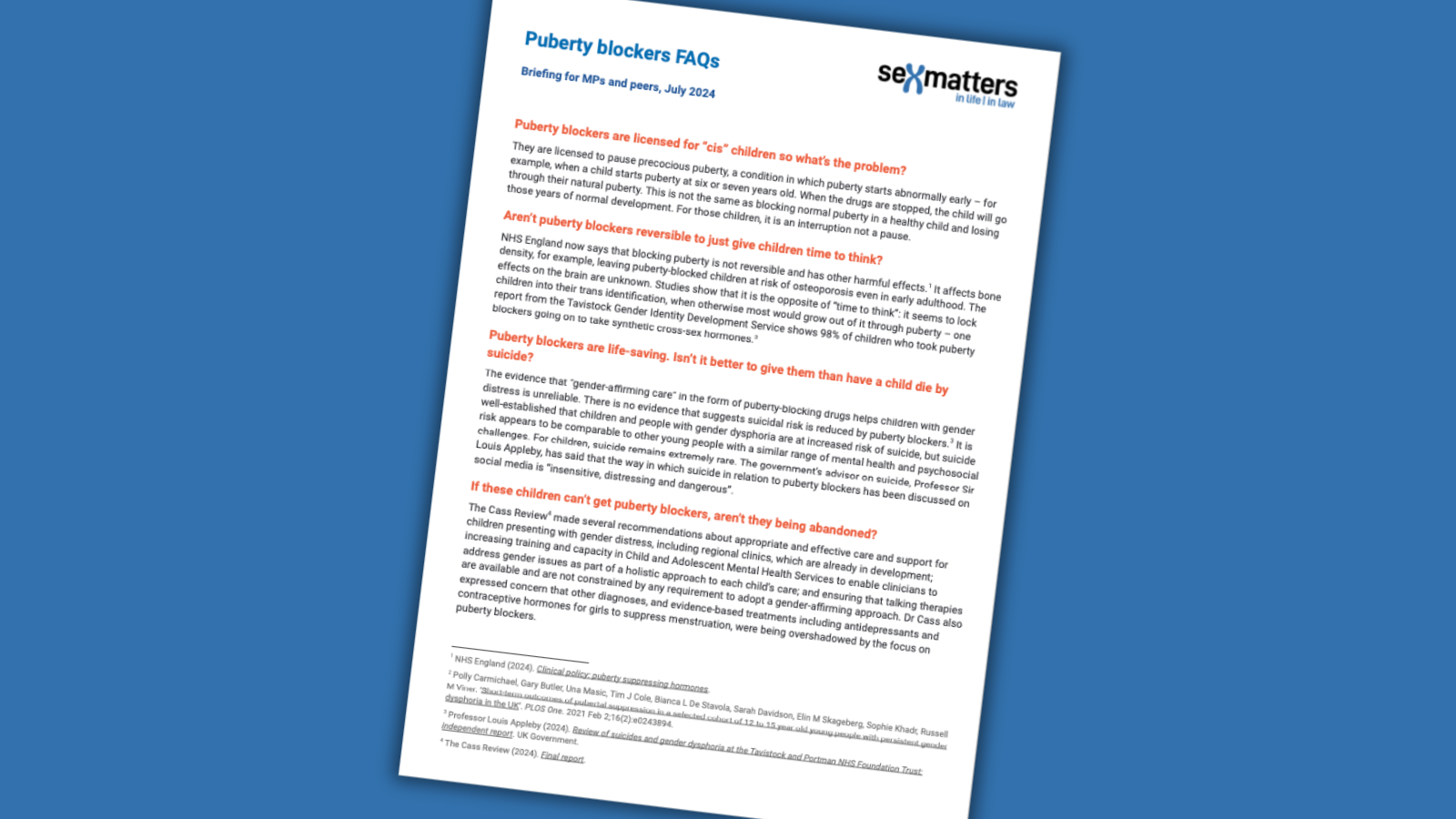
Puberty blockers FAQs
Briefing for MPs and peers, July 2024. A two-page summary of the most frequently asked questions about puberty-suppressing drugs. See also our more detailed briefing for MPs on puberty blockers.
-
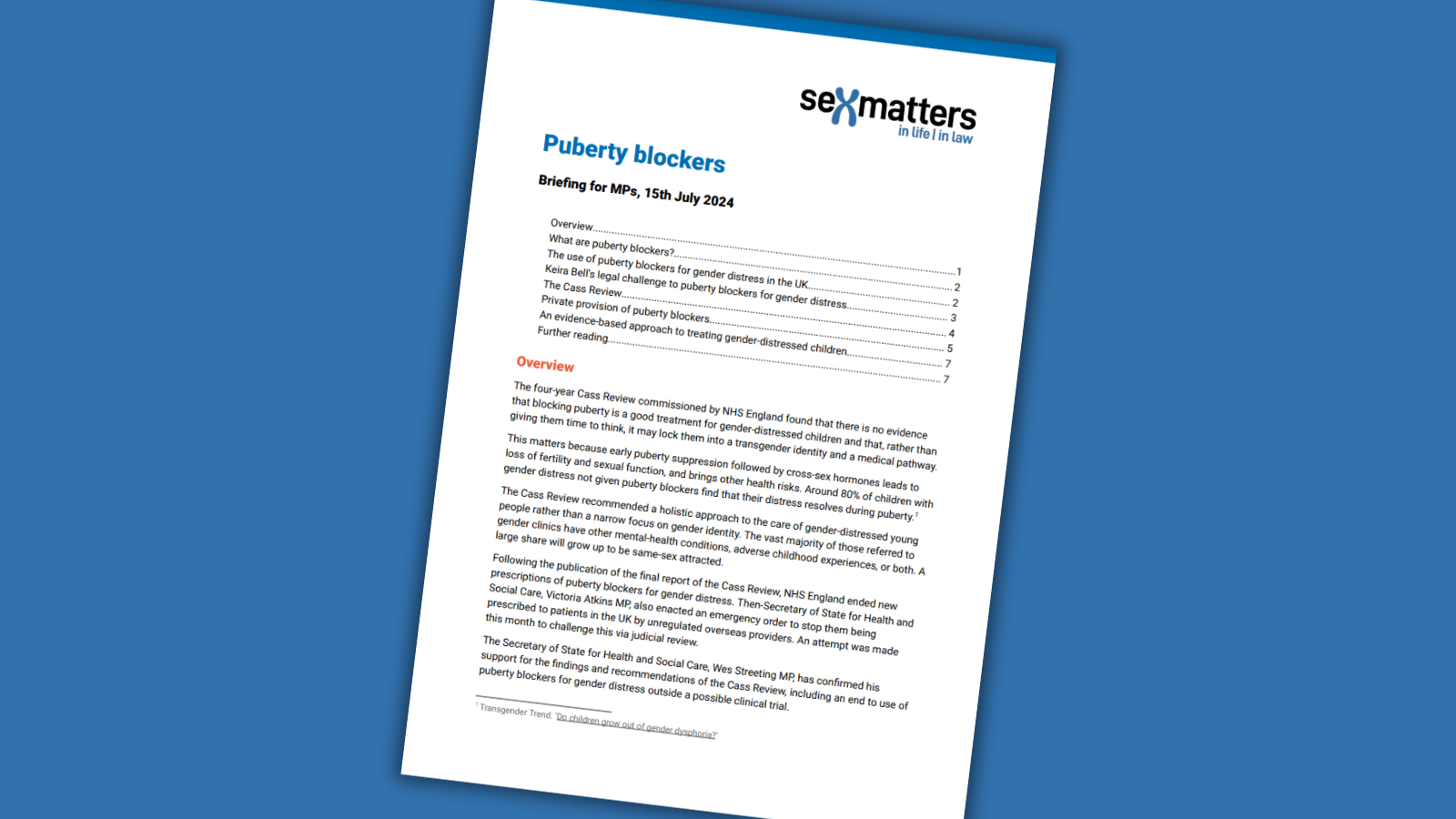
Puberty blockers – a briefing for MPs
We explain the background to the Secretary of State for Health and Social Care’s decision to end the use of puberty blockers for gender distress, based on the recommendations of the Cass Review. See also our two-page Puberty blockers FAQs for MPs.
-
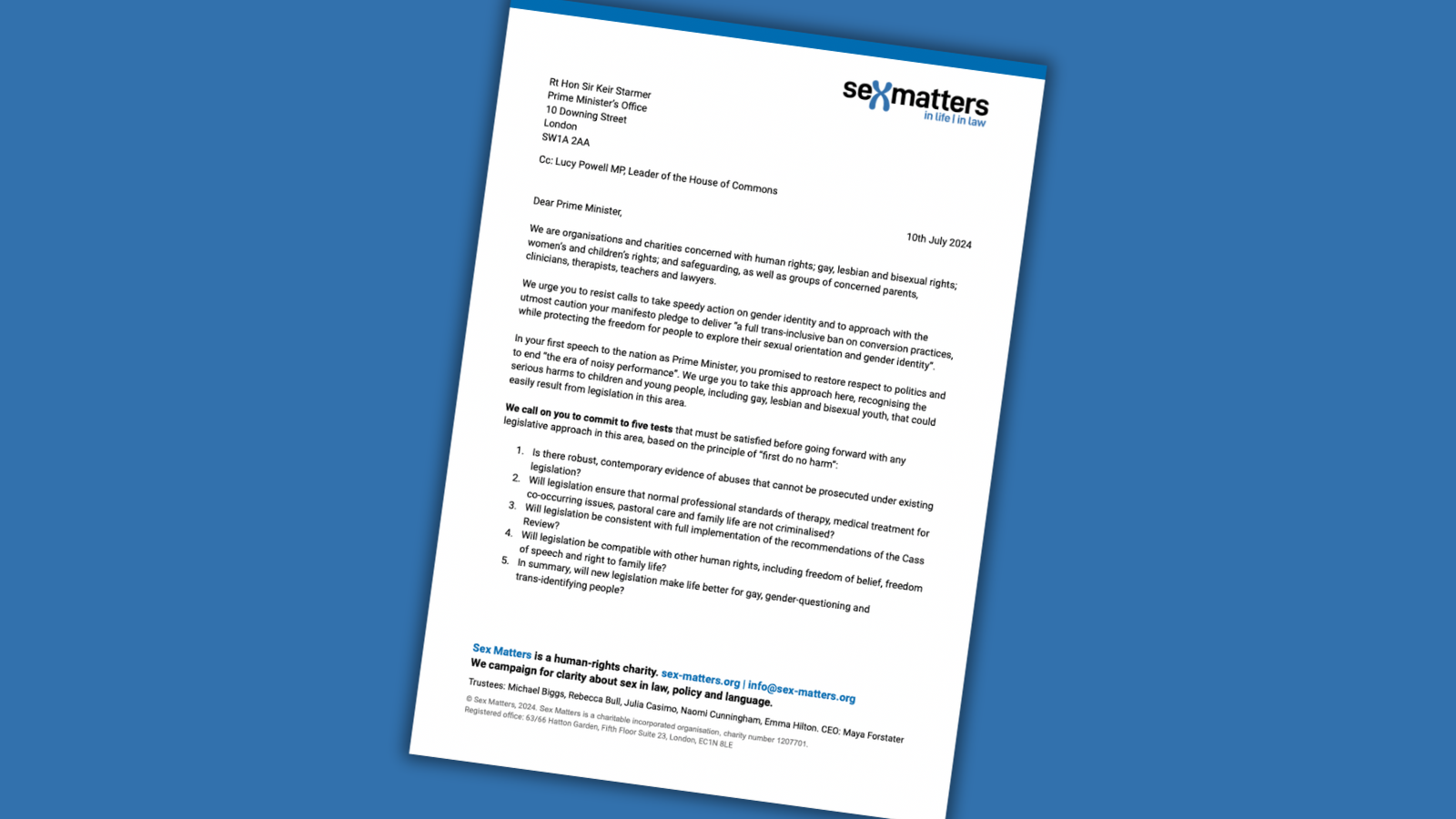
Letter to the Prime Minister: five tests for legislation to ban conversion practices
Alongside other organisations, we wrote to Keir Starmer to ask him to commit to five tests that must be satisfied before going forward with any legislation on “conversion therapy”.
-
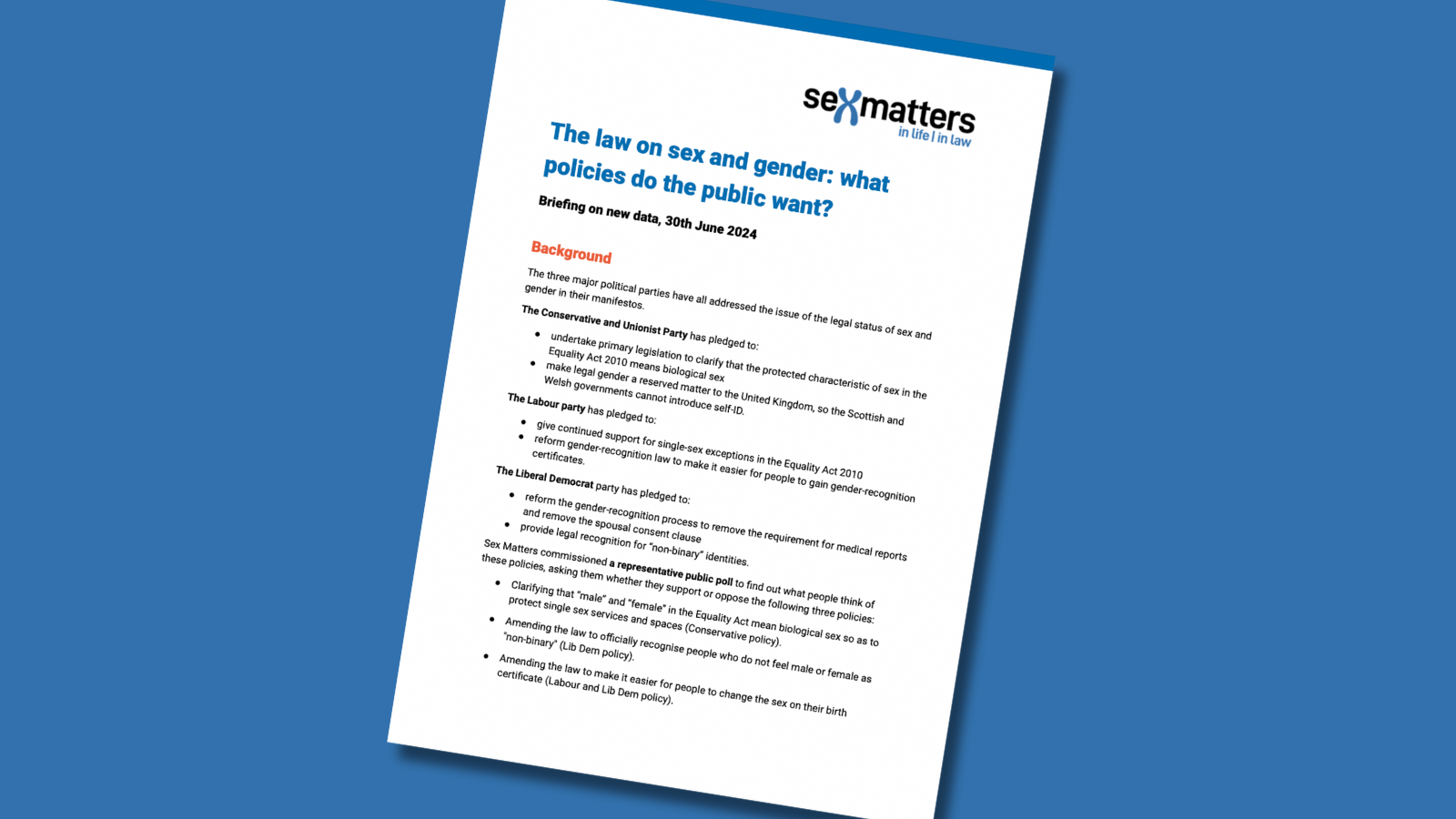
Briefing on new poll on sex and gender
The law on sex and gender: what policies do the public want? Results of Sex Matters poll.
-
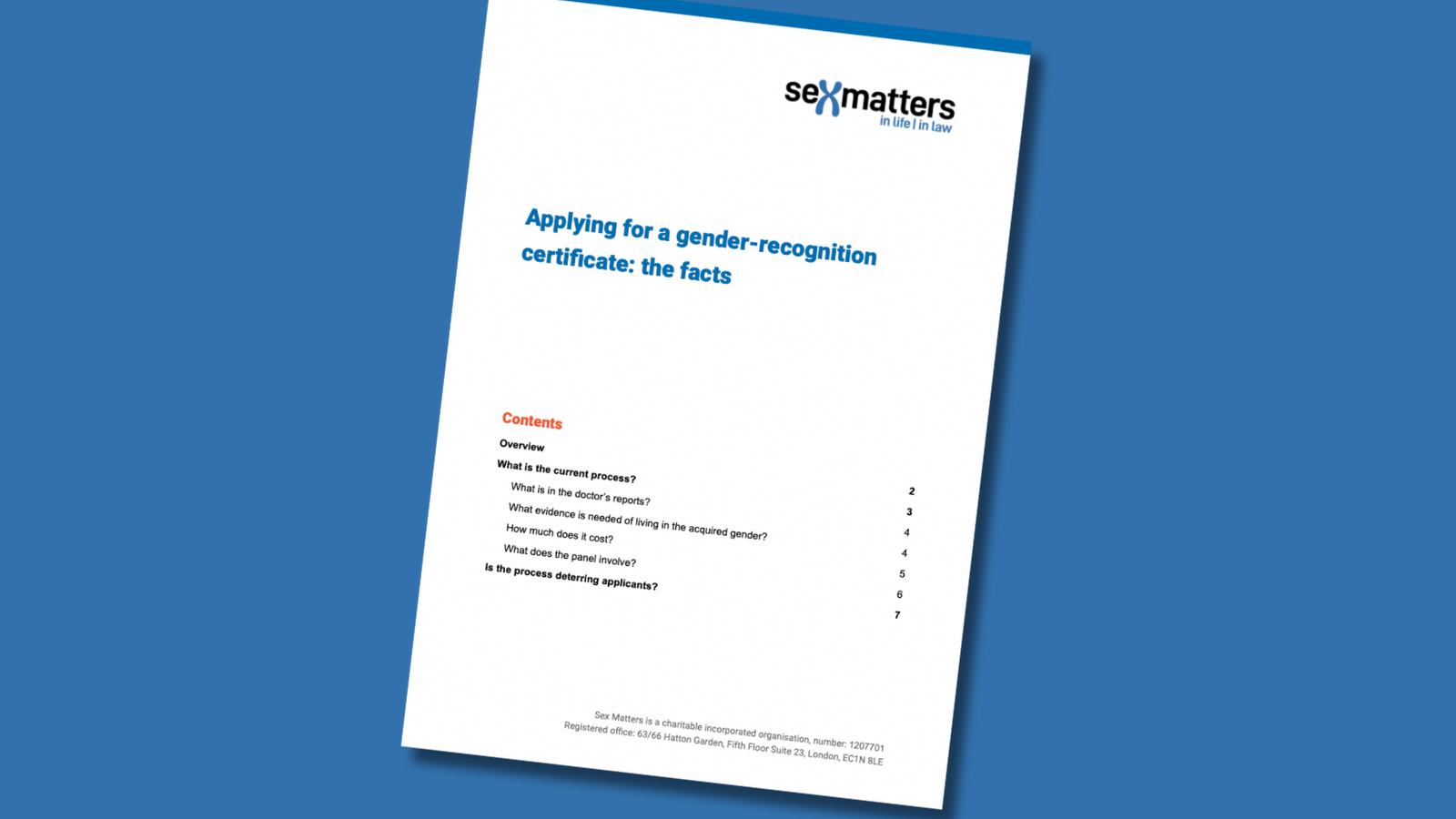
Applying for a gender-recognition certificate: the facts
Is the process “intrusive, outdated and humiliating”? We examine the evidence.
-
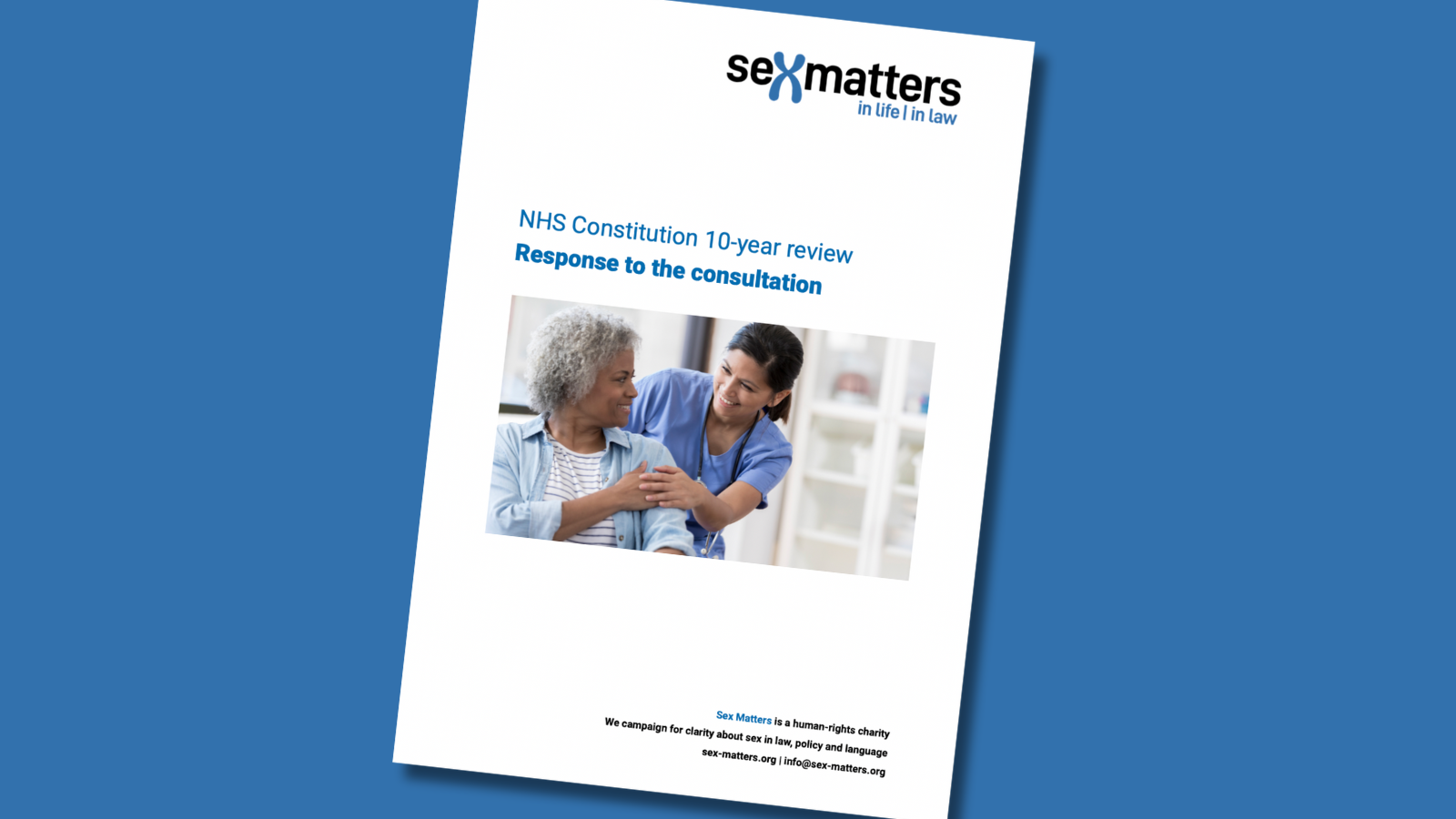
NHS Constitution 10-year review: response to the consultation
As part of the 2024 10-year review of the NHS Constitution, new provisions have been proposed on sex and gender. We explain these and give our responses to the consultation.
-
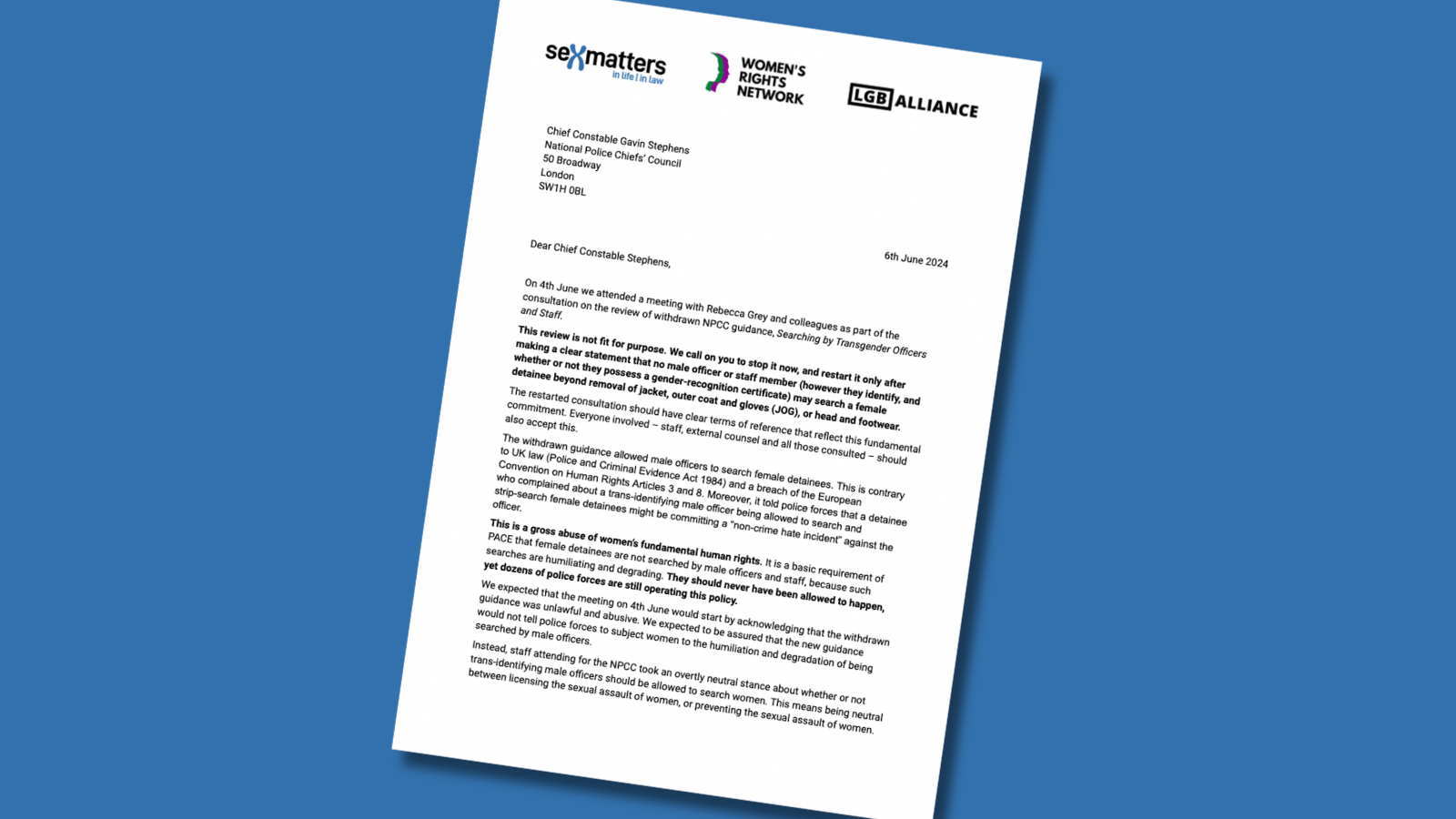
Letter to Gavin Stephens, National Police Chiefs’ Council
From Sex Matters, Women’s Rights Network and LGB Alliance. “We will not take part in a consultation process designed to whitewash the development of another abusive guidance document.“
-
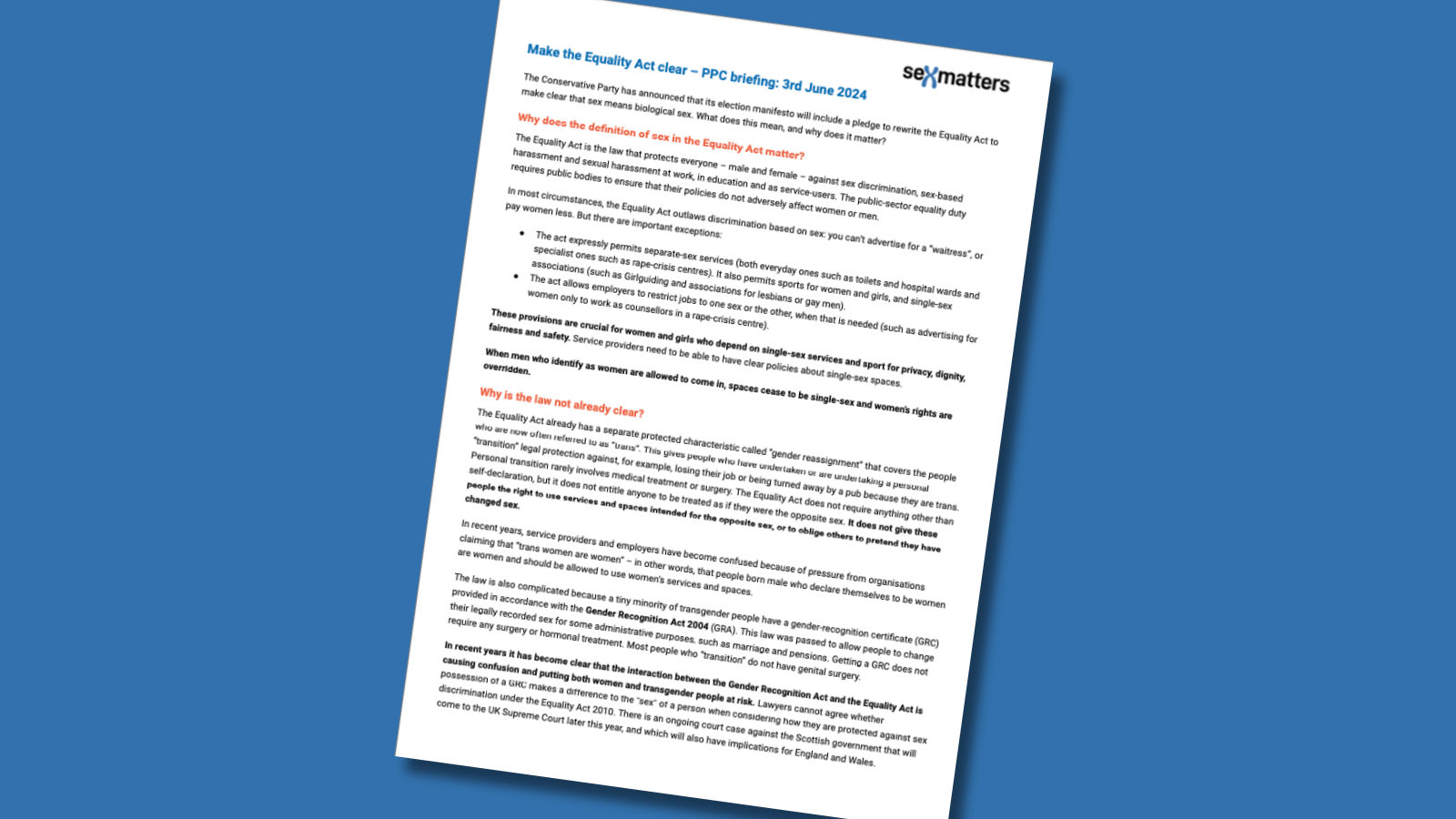
Make the Equality Act clear – PPC briefing
Briefing for prospective parliamentary candidates, 3rd June 2024, after the Conservative party announced it would include this in its election manifesto. What does it mean, and why does it matter?
-
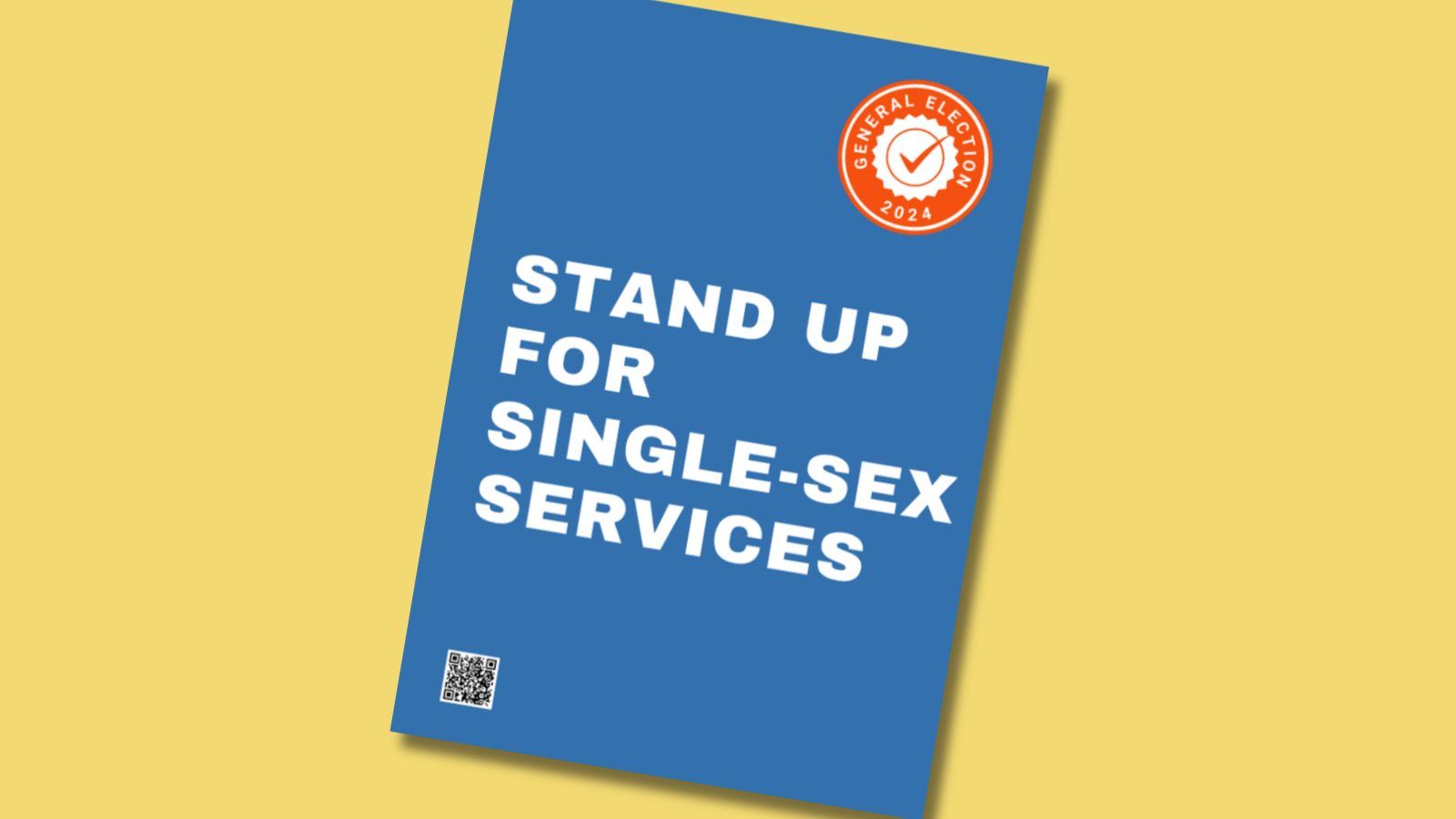
Action guide
We want to make sure that every candidate seeking to be an MP hears that people want them to STAND UP FOR SINGLE-SEX SERVICES. Every voice counts – our campaign action guide has a poster to print out, ideas for what to say to canvassers who come to your...
-

Learning from the Jo Phoenix case
What universities and their regulators need to know and do
What happened at the Open University was not an isolated problem, and it was not just about Phoenix. This briefing tells the story of the case based on the findings of the employment tribunal, and sets out lessons for the university... -

Academic mobbing – what university management needs to know
Ian Pace, Professor of Music, Culture and Society at City, University of London, writes for Sex Matters on the phenomenon of workplace mobbing, drawing on studies of dissent under totalitarian regimes and the phenomenon of groupthink. He explores why mobbing seems to be on the rise in universities, with...
-
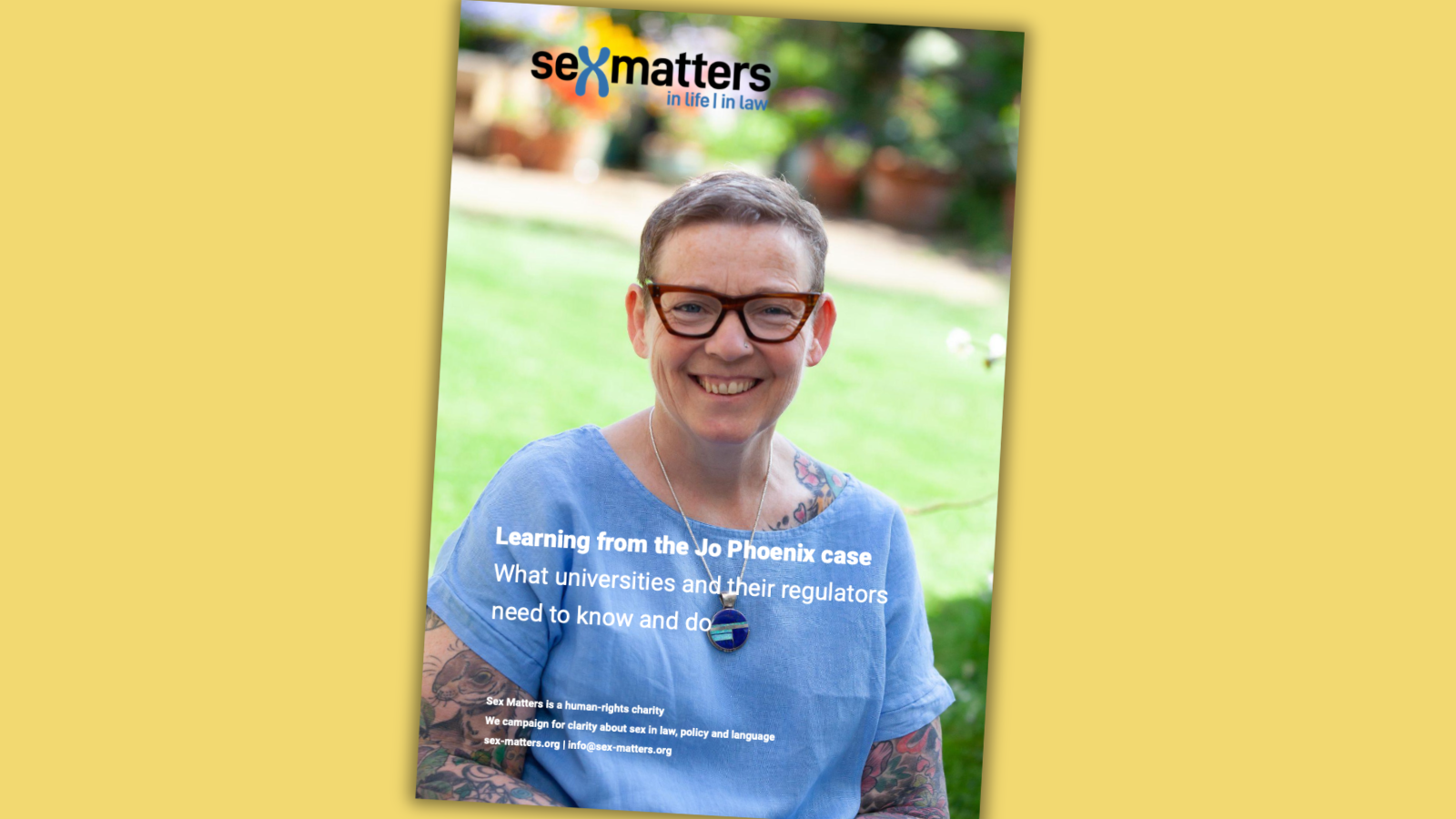
Learning from the Jo Phoenix case – what universities and their regulators need to know and do
Read the online version.
Professor Jo Phoenix became the target of a campaign of harassment from her colleagues at the Open University in 2019. An employment tribunal found the OU liable for more than 25 counts of belief discrimination and harassment, leading to unlawful constructive dismissal.
But what happened at... -
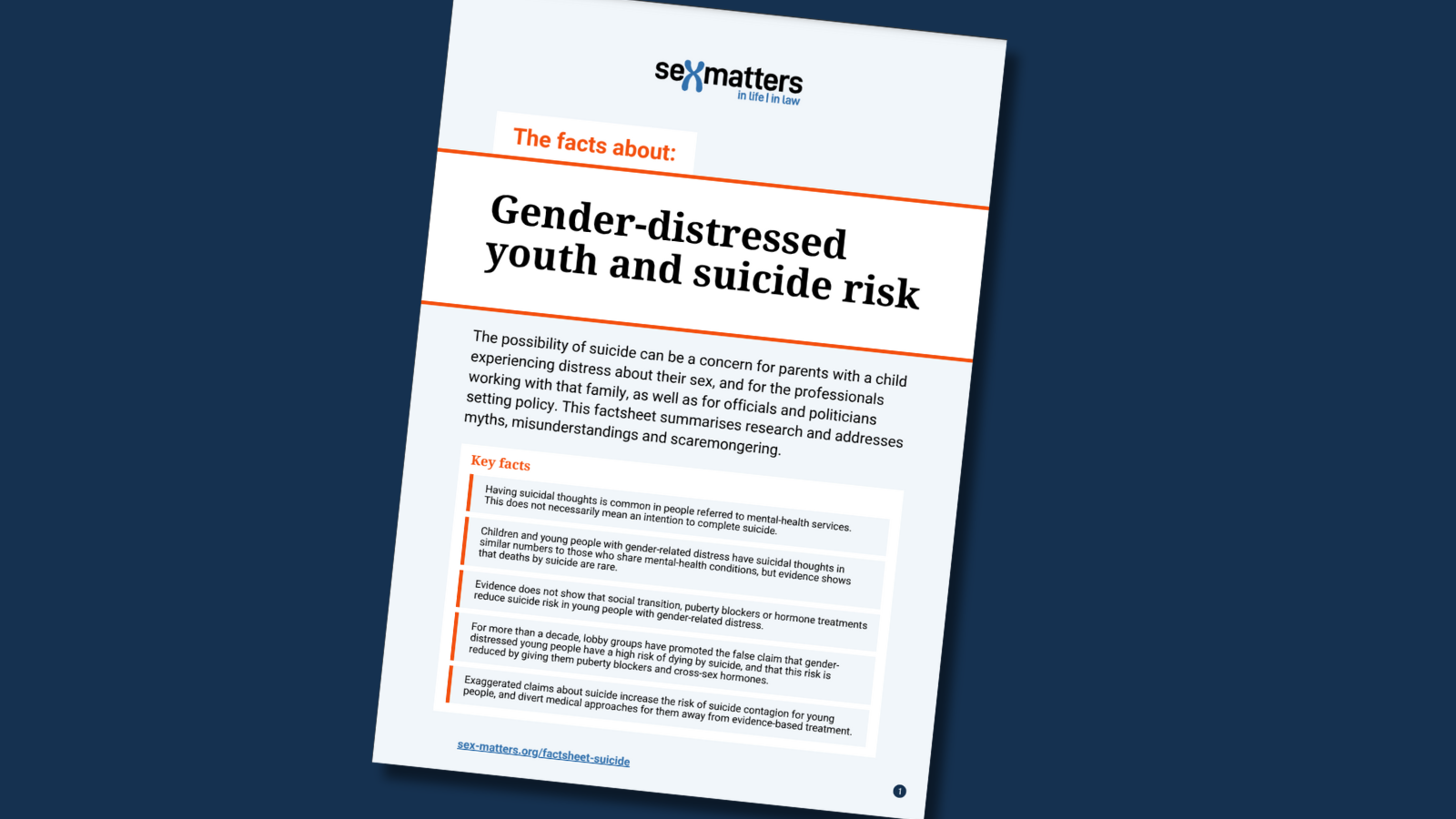
Gender-distressed youth and suicide risk – factsheet
The possibility of suicide can be a concern for parents with a child experiencing distress about their sex, and for the professionals working with that family, as well as for officials and politicians setting policy. This factsheet summarises research and addresses myths, misunderstandings and scaremongering.
-
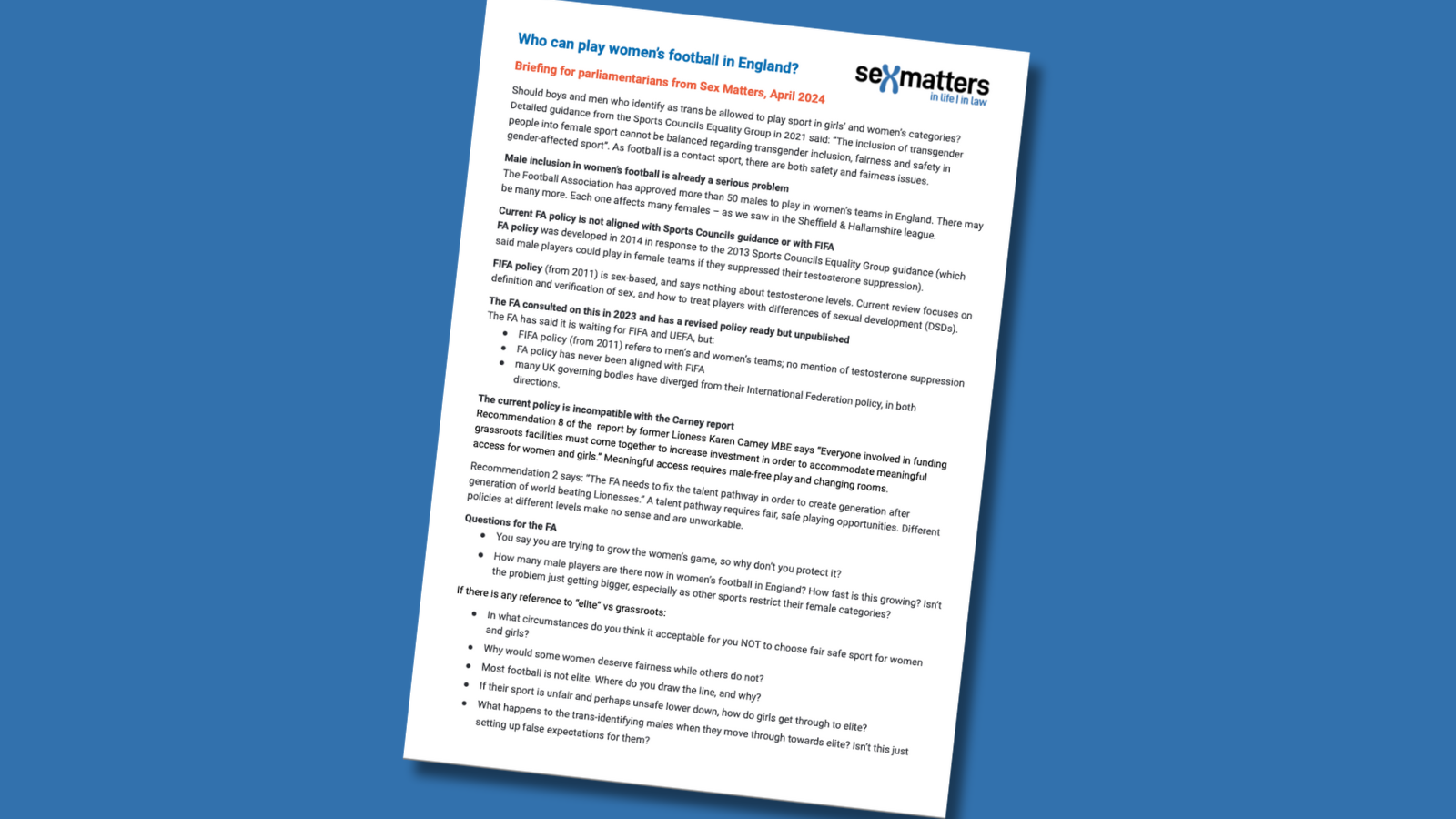
Who can play women’s football in England?
Briefing for parliamentarians from Sex Matters, April 2024. Includes details of current FA and FIFA policies on the inclusion of trans-identifying males.
-
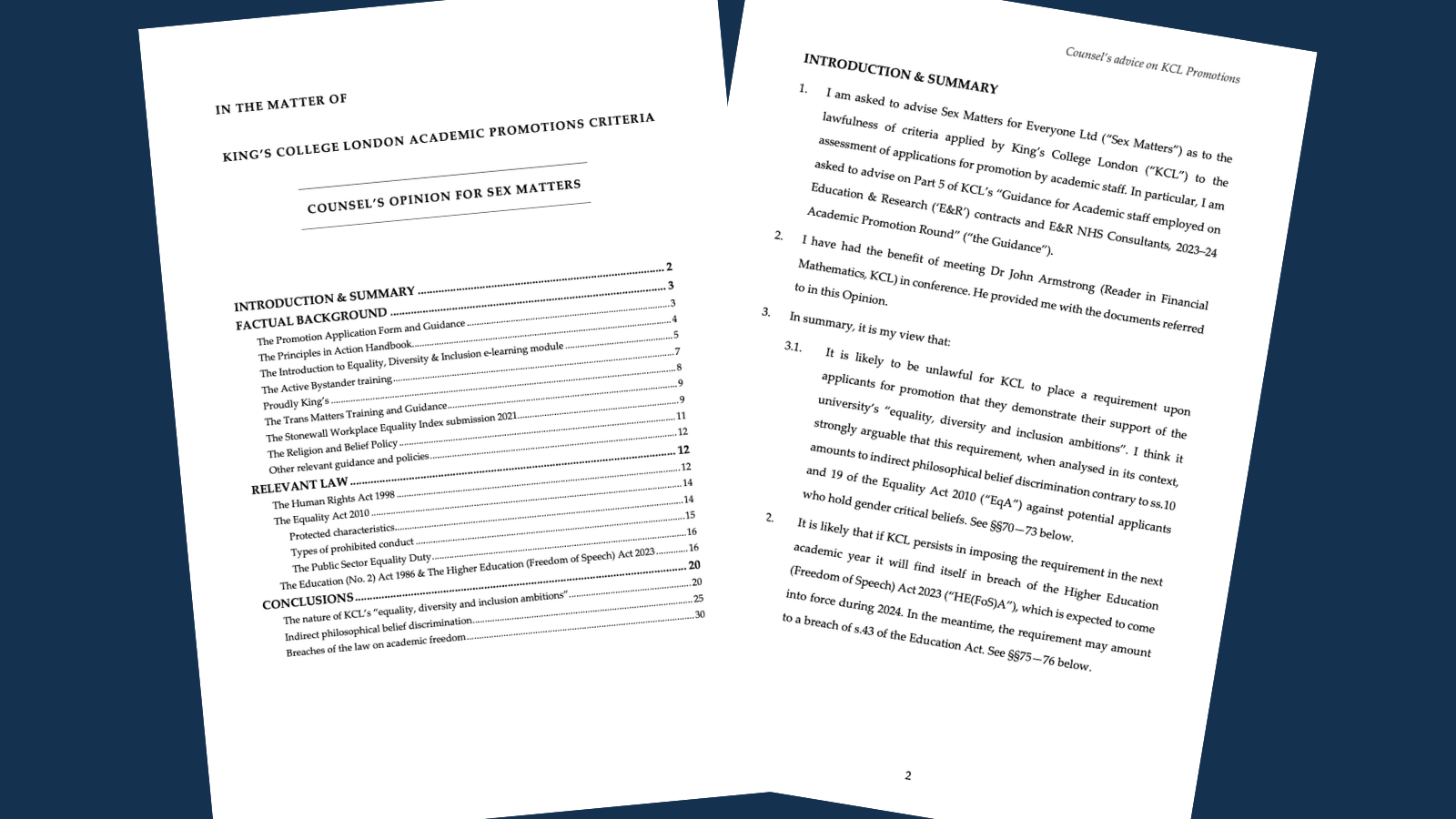
Counsel’s opinion in the matter of King’s College London academic promotions criteria
KCL’s promotion policy discriminates on the basis of gender-critical beliefs, and will also be likely to contravene the new law on academic freedom due to come into force in August 2024.
-
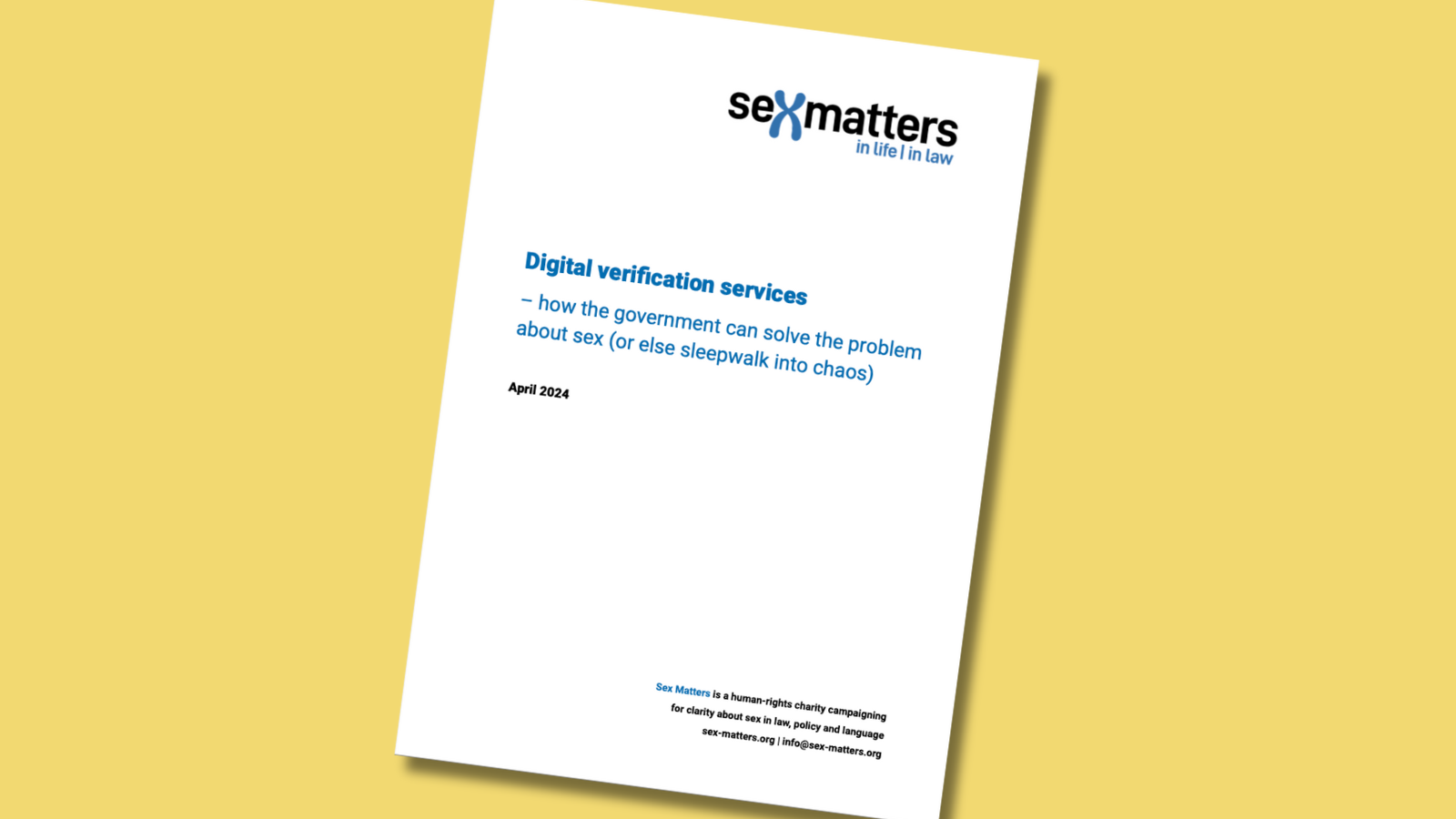
Digital verification services
– how the government can solve the problem about sex (or else sleepwalk into chaos)
-
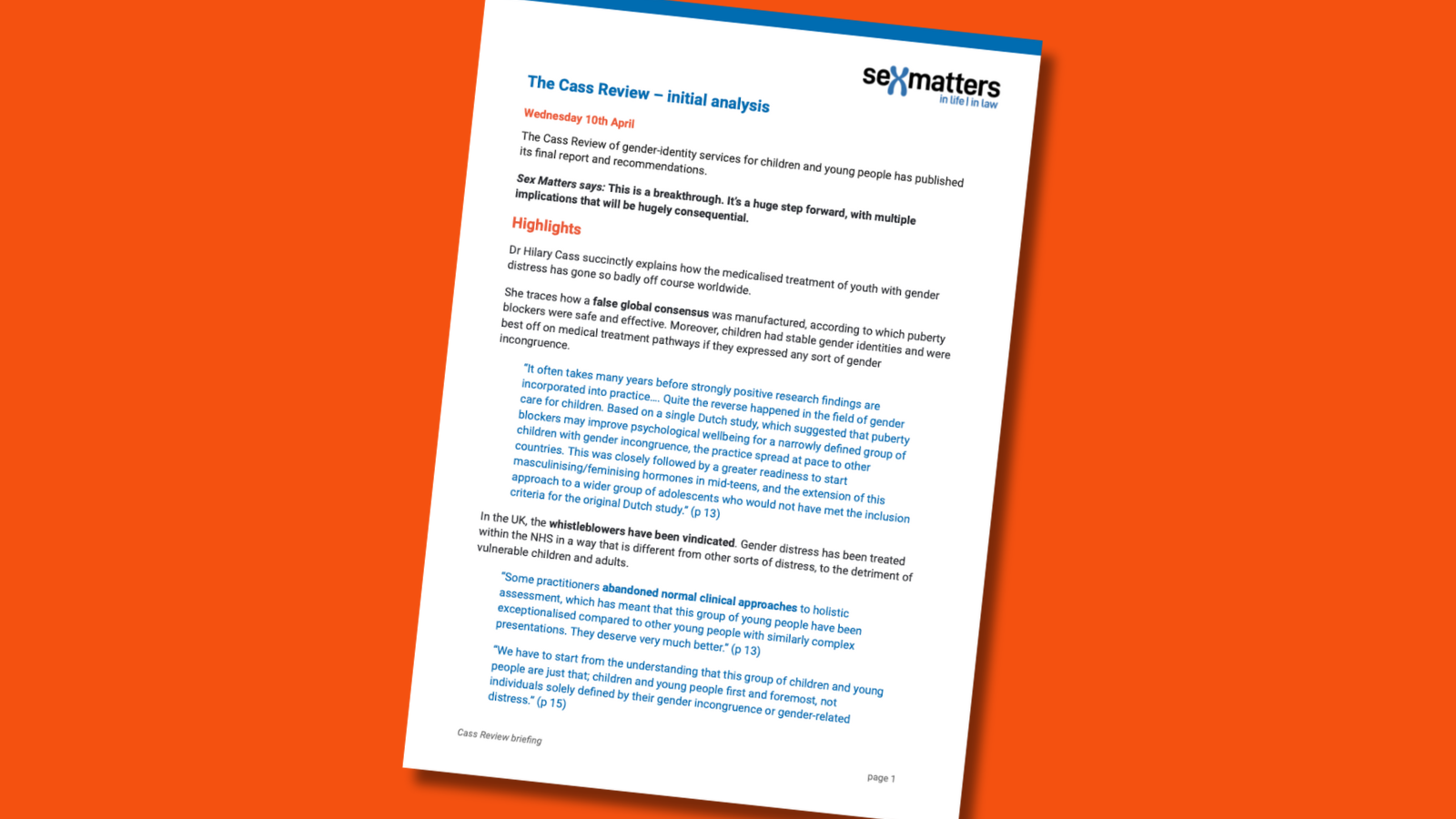
The Cass Review – initial analysis
The Cass Review of gender-identity services for children and young people has published its final report and recommendations. Sex Matters says: This is a breakthrough. It’s a huge step forward, with multiple implications that will be hugely consequential.
-
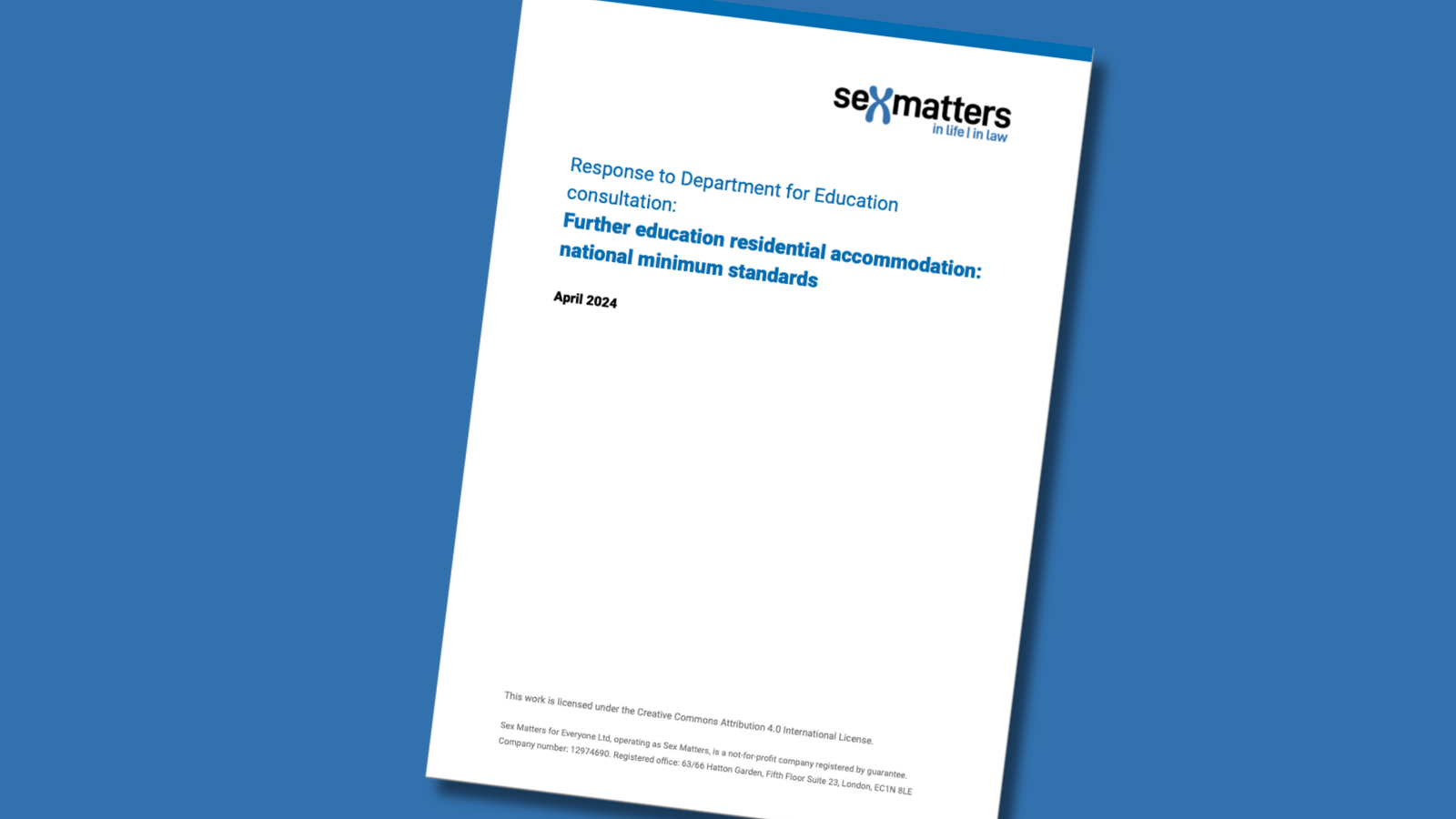
Response to Department for Education consultation on national minimum standards for further education residential accommodation
Aims to align the standards with the position on residential accommodation being consulted on in the draft "Gender Questioning Children: non-statutory guidance for schools and colleges in England".
-
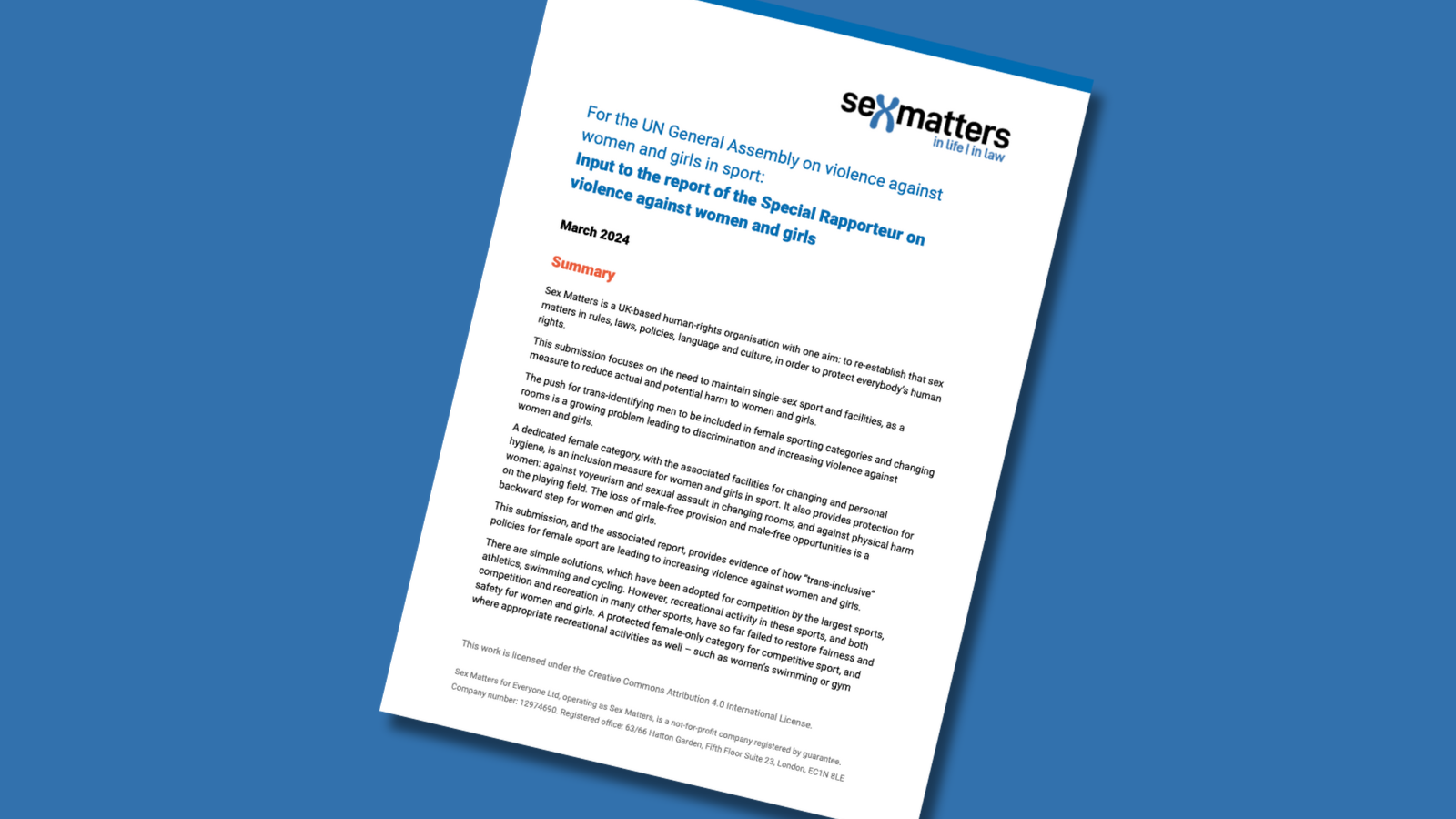
Input to the report of the Special Rapporteur on violence against women and girls
For the UN General Assembly on violence against women and girls in sport. Sent with Fair Play For Women's report How 'inclusion' in sport is harming women and girls.
-
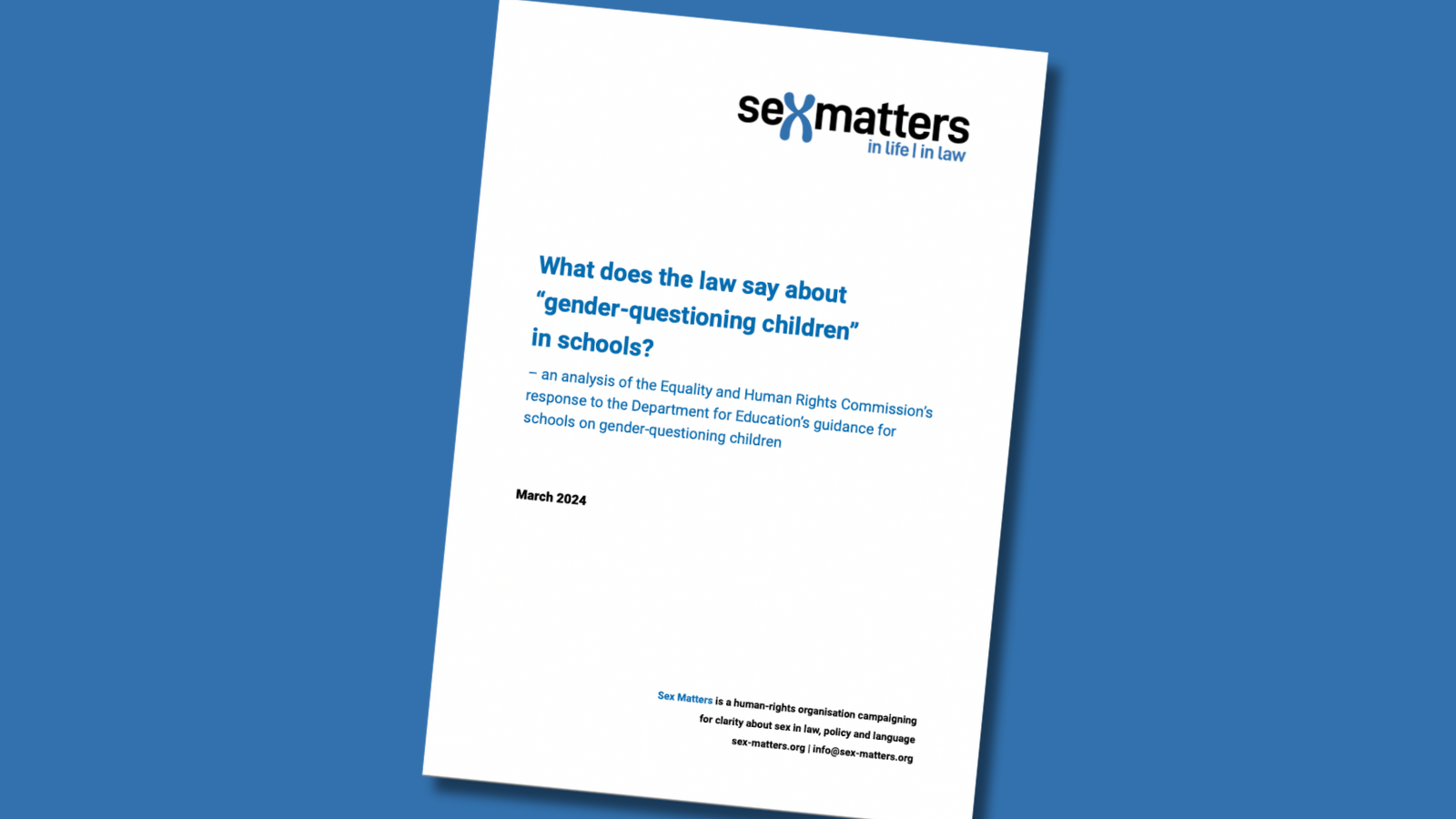
What does the law say about “gender-questioning children” in schools?
An analysis of the Equality and Human Rights Commission’s response to the Department for Education’s draft guidance for schools on gender-questioning children. See all our updates about this guidance.
-
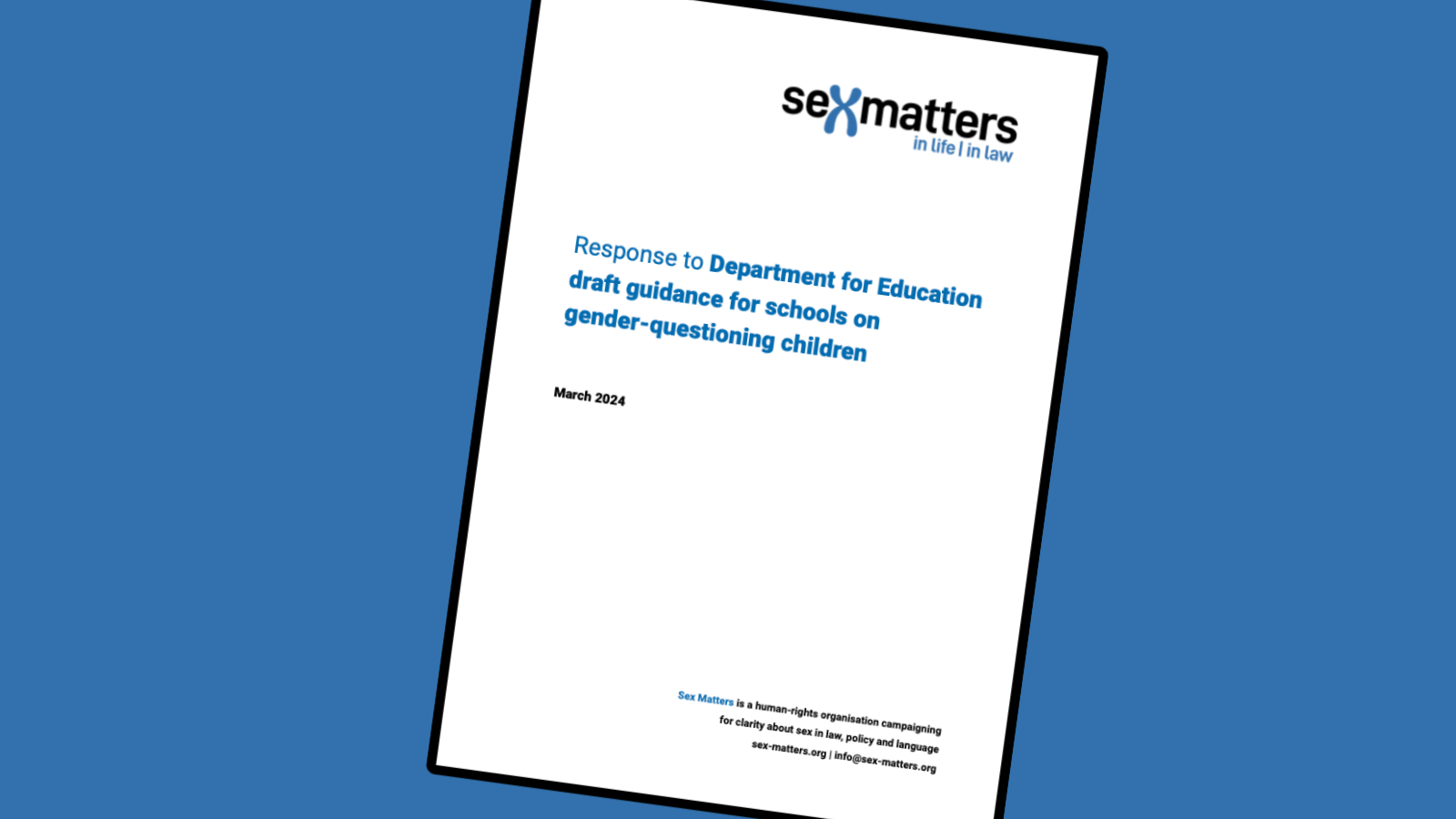
Response to Department for Education draft guidance for schools on gender-questioning children
Our final response (after our draft response) to the DfE’s draft guidance for consultation, published in December 2023. See all our updates about this guidance.
-
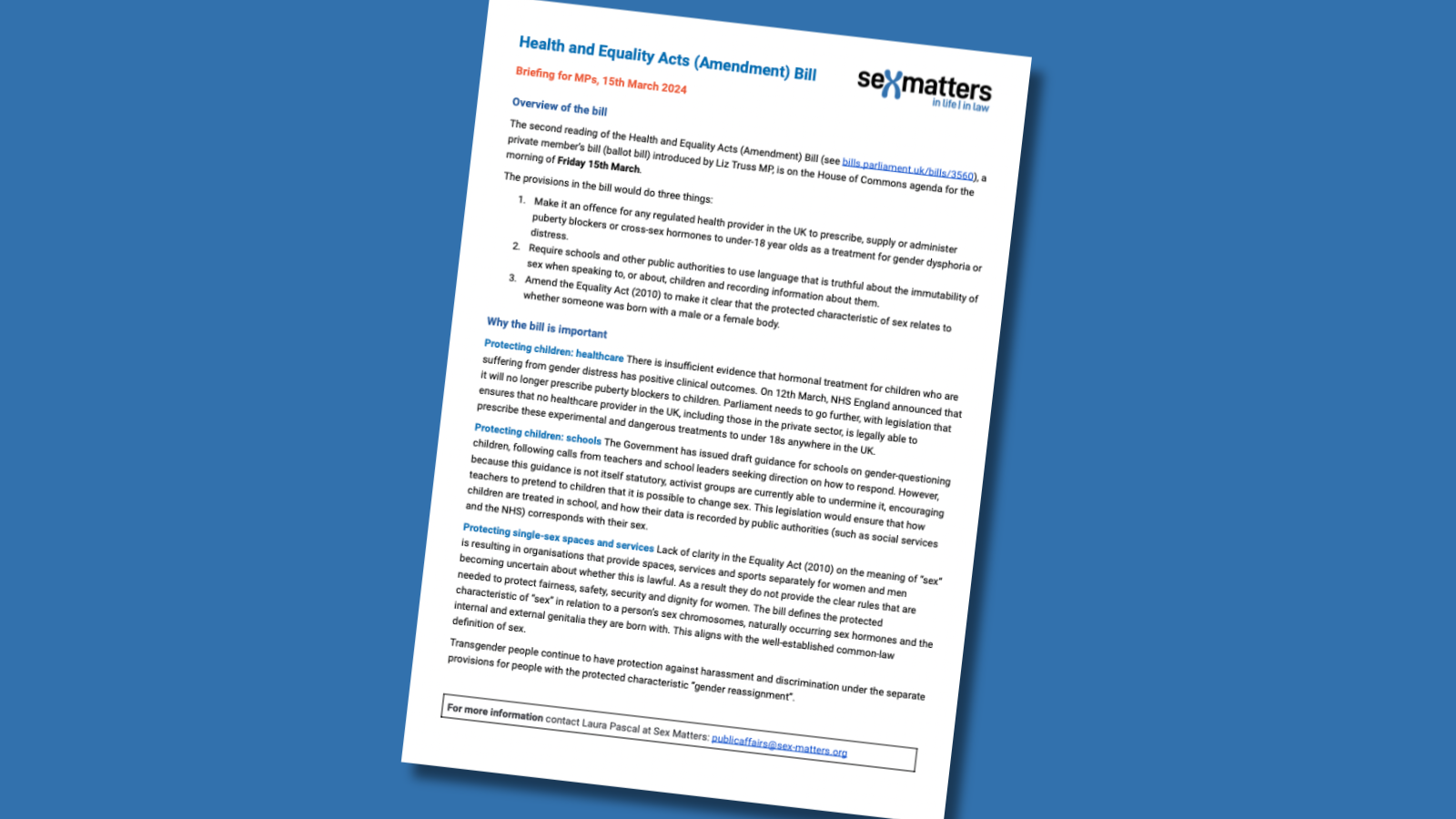
Health and Equality Acts (Amendment) Bill – briefing
This private member’s bill‘s second reading is on the House of Commons agenda for the morning of Friday 15th March 2024. This single-page briefing explains why it’s important.
-

WPATH in the UK
A list of organisations in the UK influenced by the World Professional Association for Transgender Health, and lobby groups that have pushed its approach to gender medicine.
-
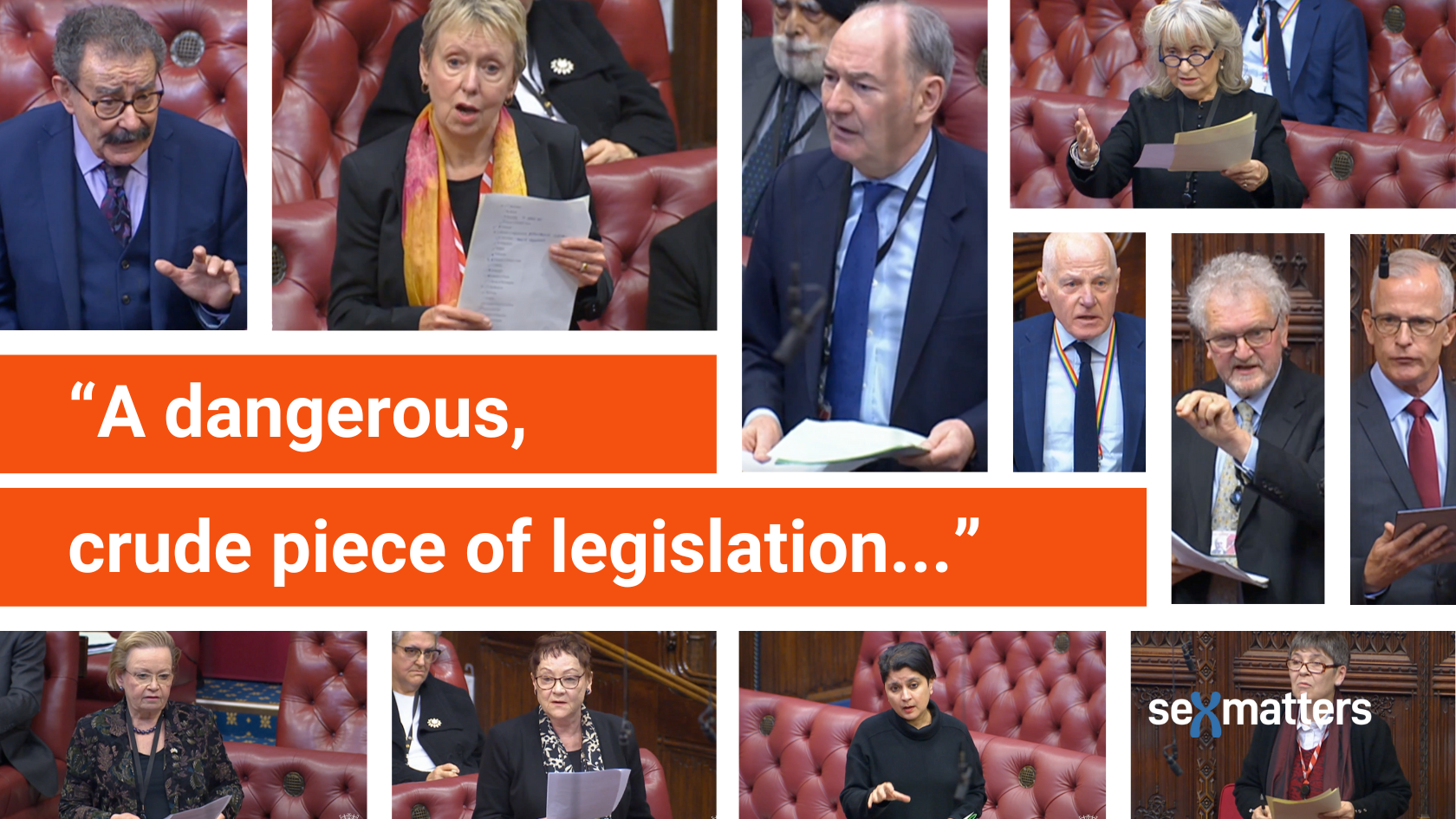
The House of Lords debate on conversion therapy
On Friday 9th February 2024 Baroness Burt’s Private Member's Bill proposing a ban on "conversion therapy" was debated in the House of Lords. Twenty-nine peers spoke against it and fifteen in favour. Some important arguments were heard in Parliament for the first time.
21st February 2024
-
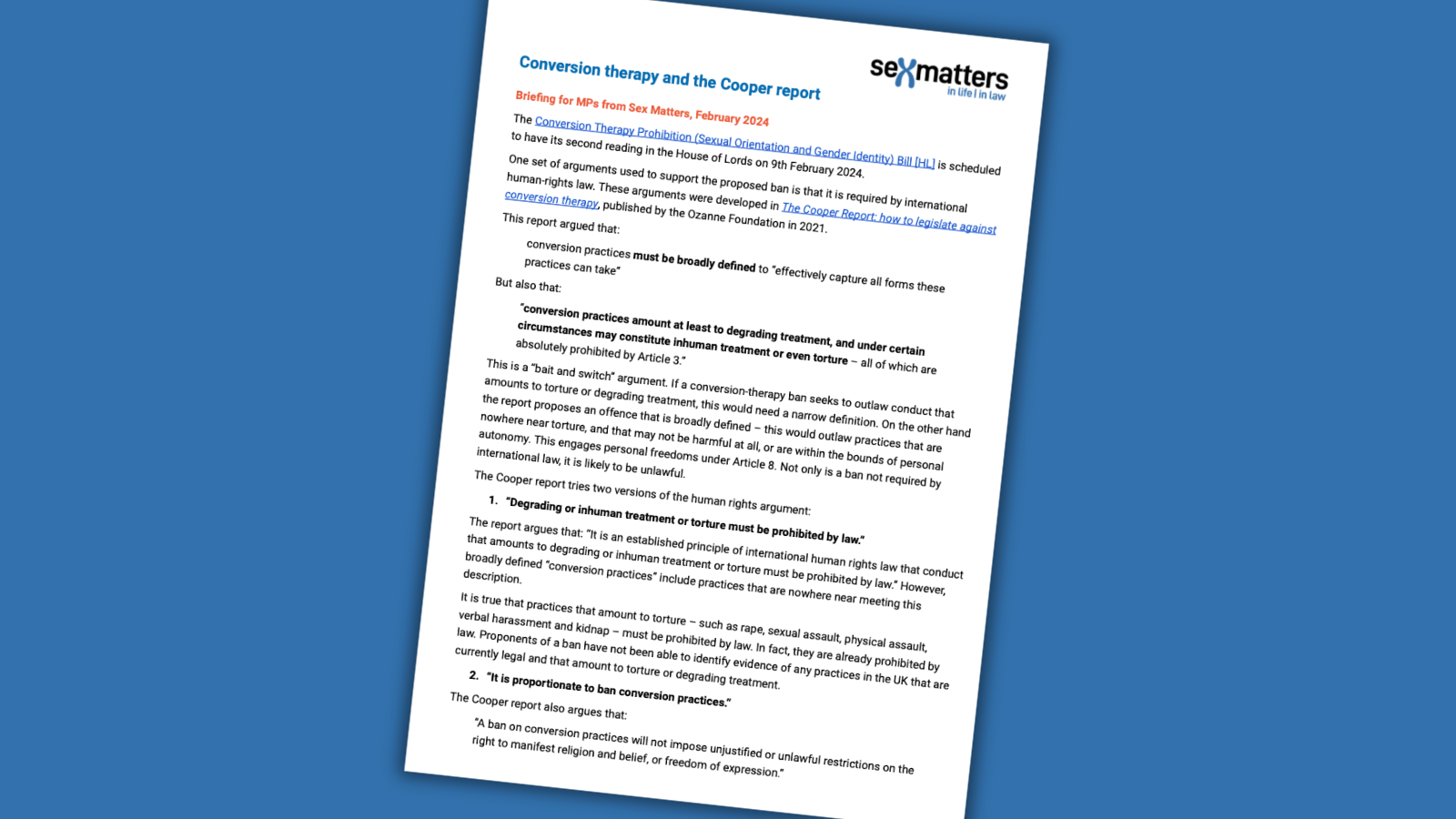
Conversion therapy and the Cooper report – parliamentary briefing
See also our more detailed parliamentary briefing on conversion therapy.
-
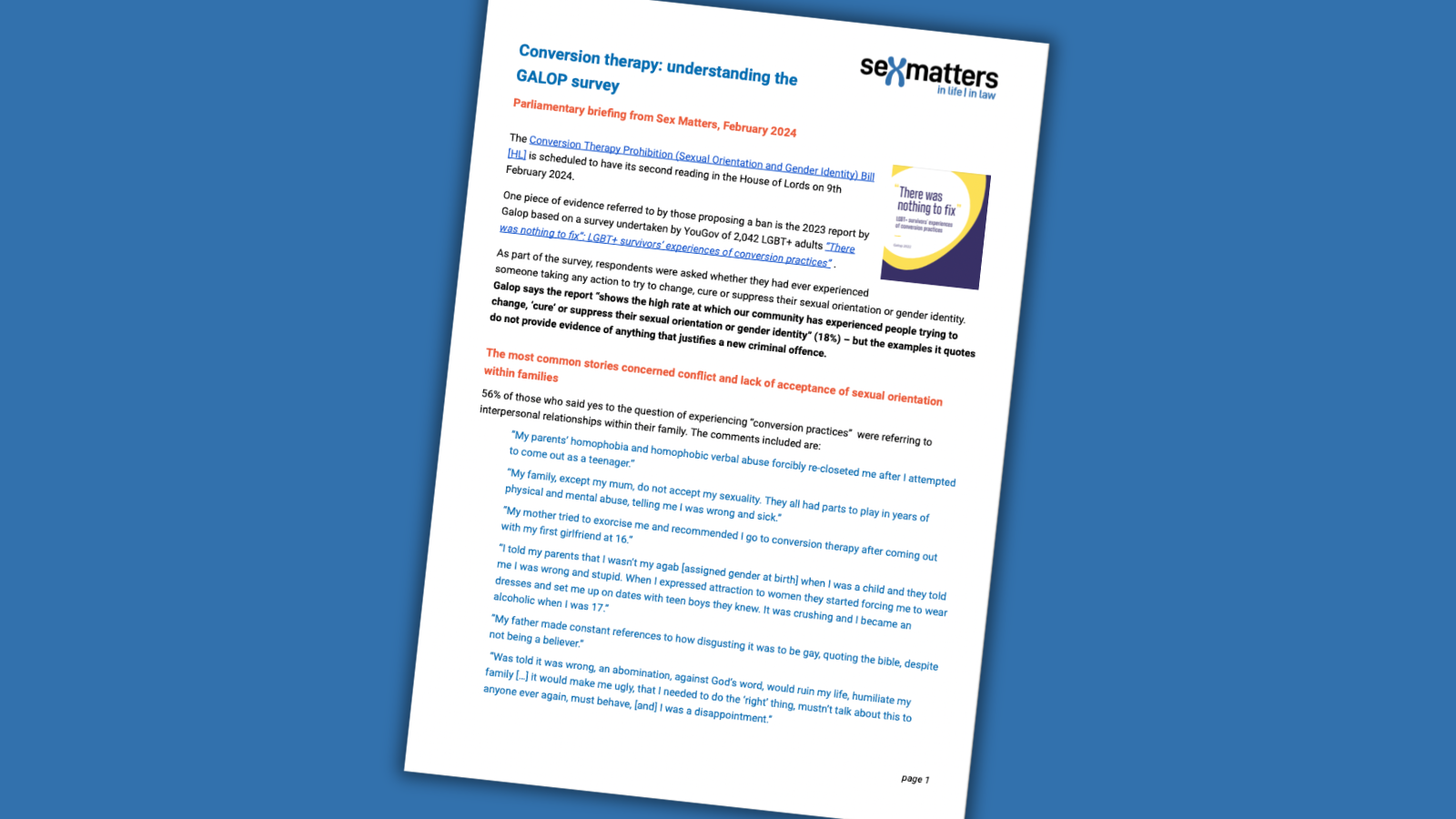
Conversion therapy: understanding the GALOP survey – parliamentary briefing
See also our more detailed parliamentary briefing on conversion therapy.
-
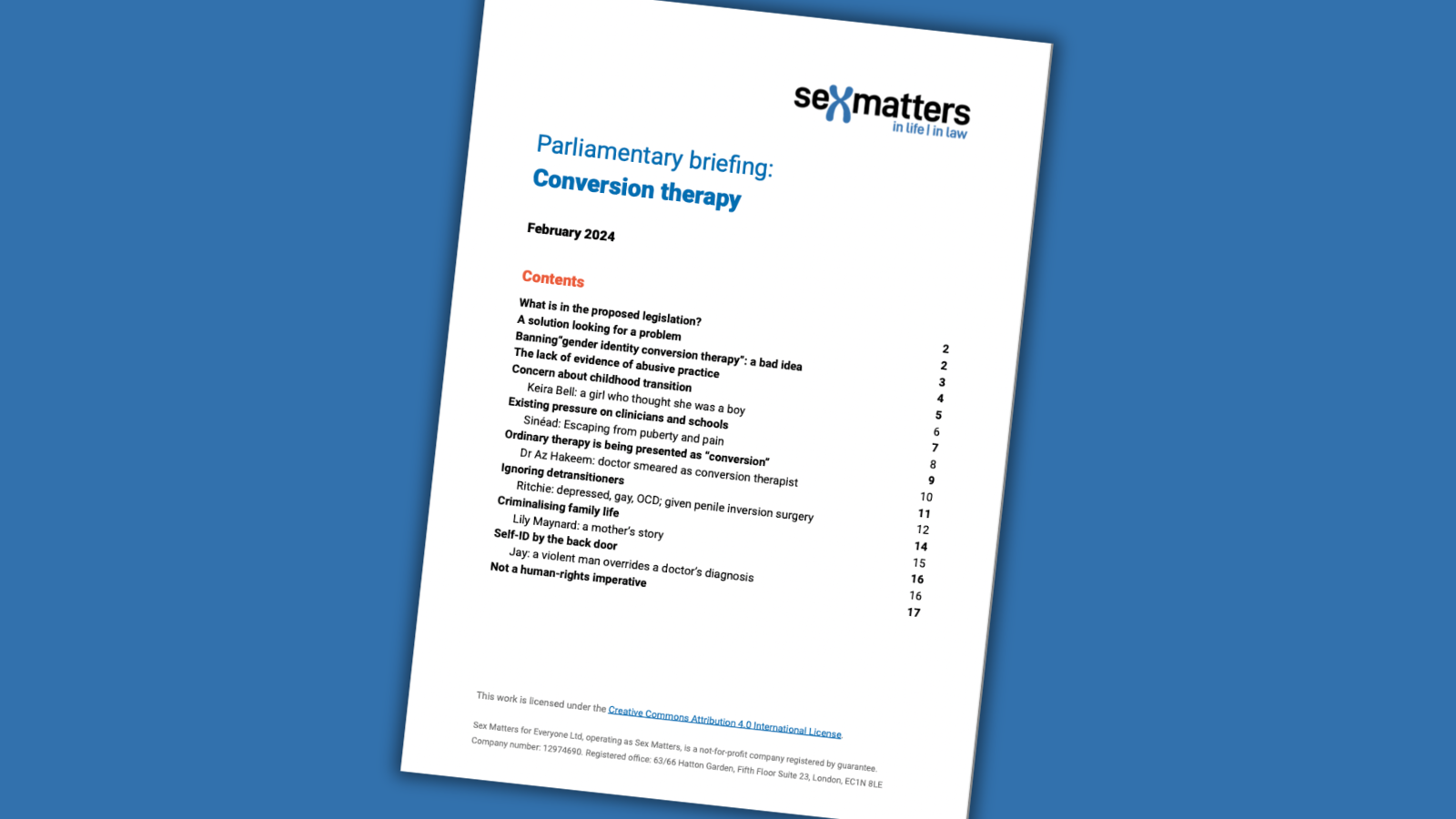
Parliamentary briefing: conversion therapy
A detailed briefing on the issues. See also our short briefings on conversion therapy and the Cooper report and understanding the Galop survey.
-
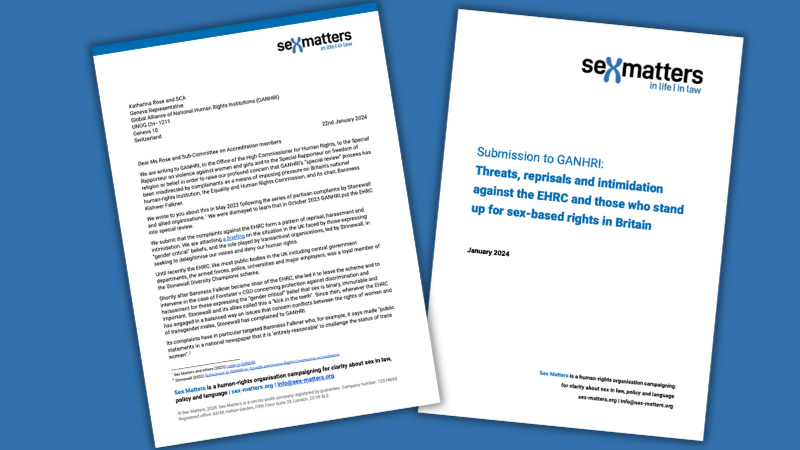
Letter to GANHRI, January 2024
We wrote to GANHRI, the Office of the High Commissioner for Human Rights, and the Special Rapporteurs on violence against women and girls and on freedom of religion or belief, together with 38 civil society organisations and groups, to raise our concern that GANHRI’s “special review” process has been...
-

Threats, reprisals and intimidation against the EHRC and those who stand up for sex-based rights in Britain
We prepared this detailed submission to accompany our letter to GANHRI (the Global Alliance of National Human Rights Institutions) which was sent with 38 organisations and groups.
-
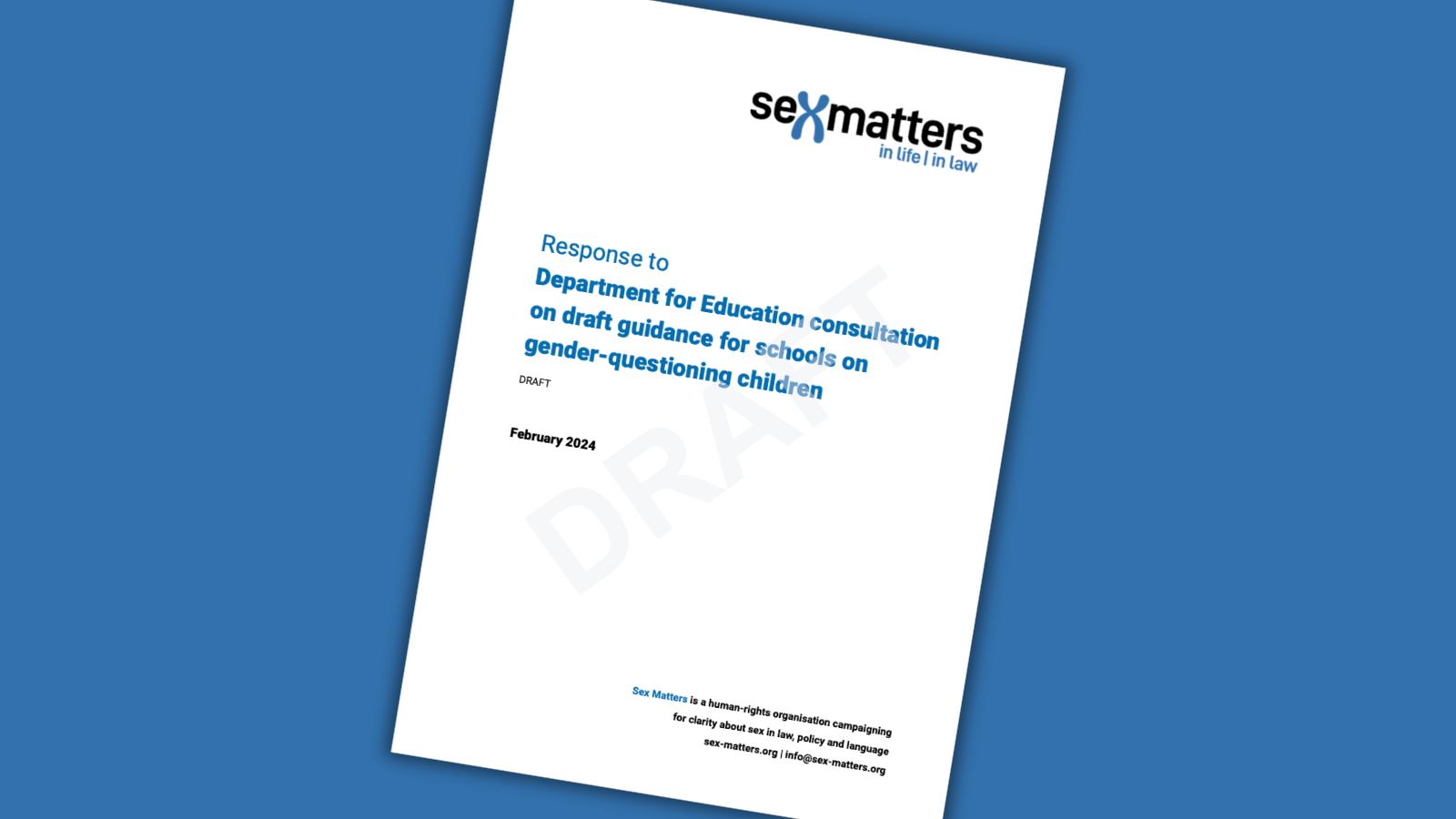
Sex Matters’ draft response to the Department for Education consultation on guidance for schools on gender-questioning children
Draft version for feedback – read the DfE draft guidance for consultation.

